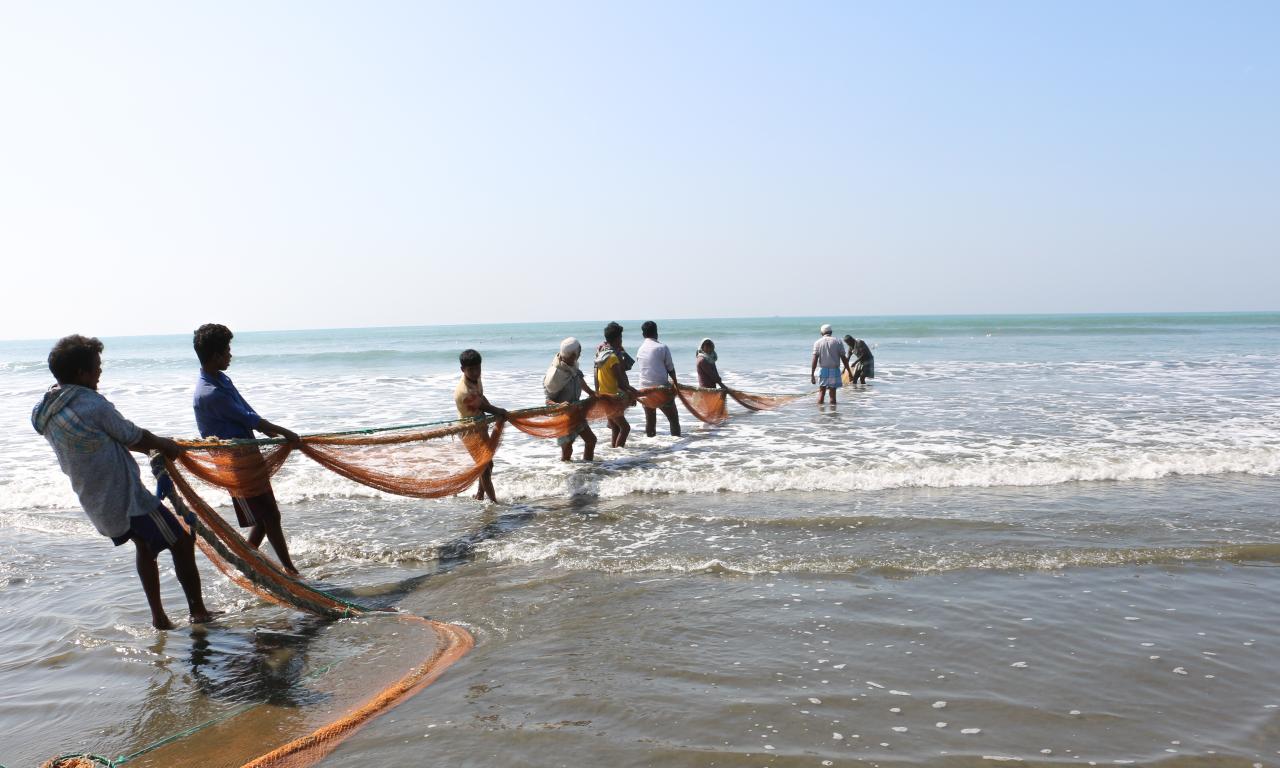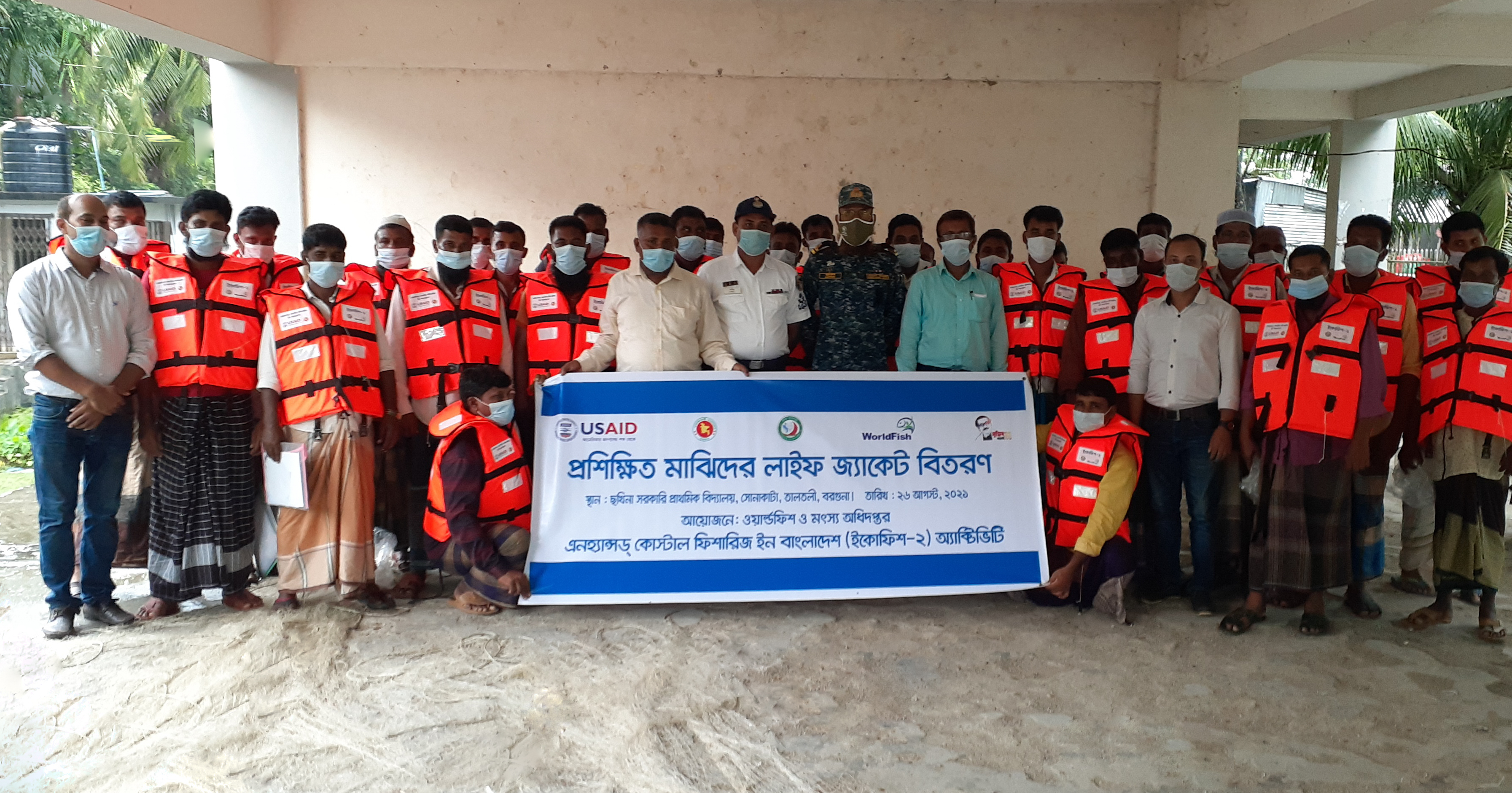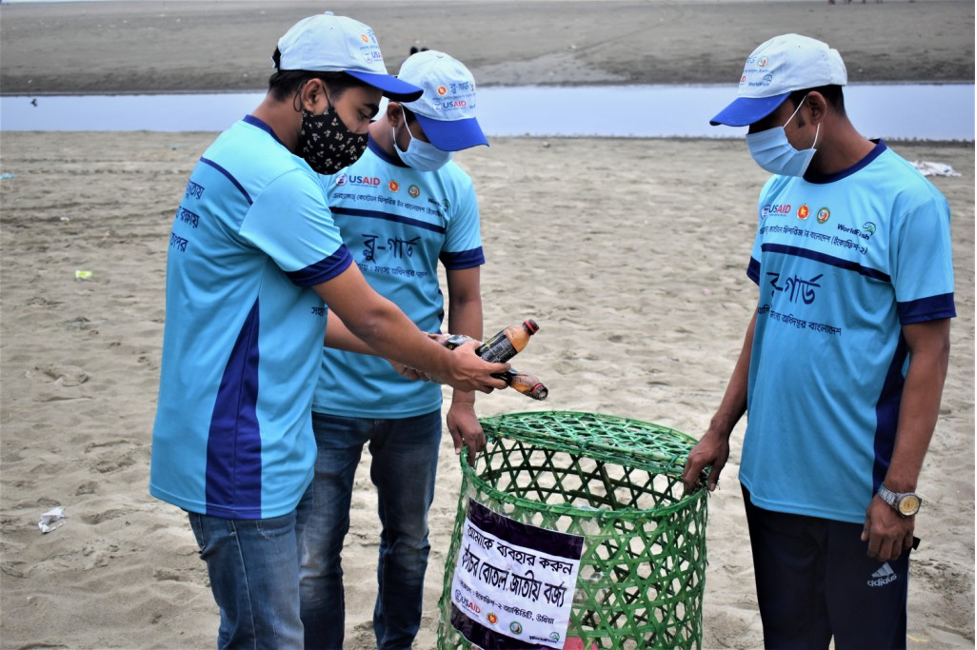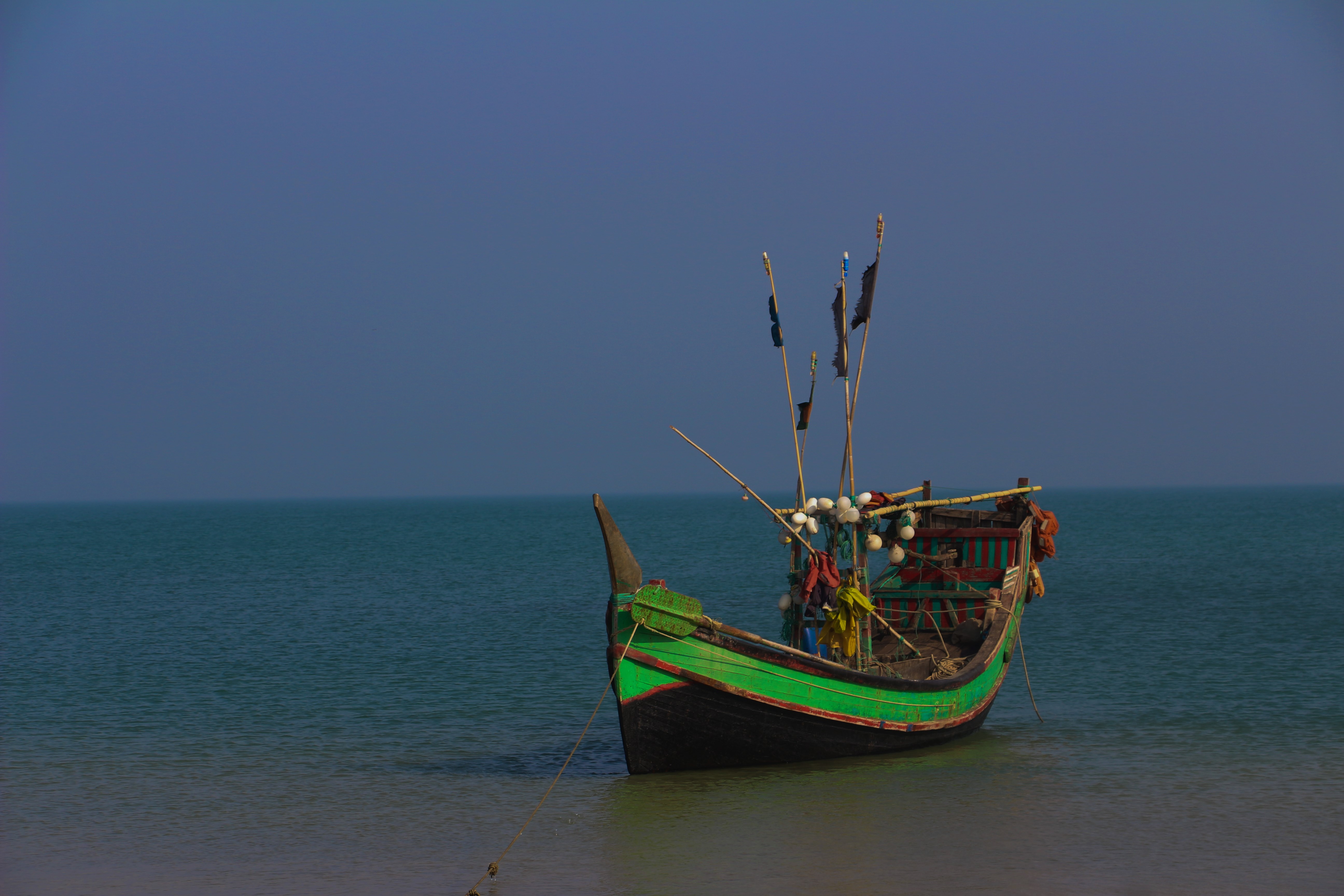
-
Ghost fishing equipment accounts for roughly 10 percent of debris in the ocean.
-
Through training under the ECOFISH II project, 300 boat skippers are taught of the pivotal role they play in protecting our oceans and safeguarding the megafauna.
-
The Blue Guards, also another initiative under the ECOFISH II project, removed 12,068 kilograms of non-decomposable pollutants between March and December 2021.
The ocean covers 71 percent of the Earth’s surface. It is central to the production of the water we drink and the air we breathe. Our survival on this planet is heavily reliant on the ocean but ocean pollution is becoming increasingly alarming as the amount of trash and chemicals in the ocean increases year after year.
Fishing equipment accounts for roughly 10 percent of debris in the ocean – between 500,000 and 1 million tons of fishing gear are discarded or lost in the ocean every year.
Abandoned, discarded or misplaced fishing gear, also known as ghost fishing fear, is one of the deadliest forms of marine plastic pollution. The worrying issue about ghost fishing apparatus that often goes unnoticed is the continued dumping of torn and abandoned fishing nets in rivers and oceans that eventually find their way to the marine environment.
The World Animal Protection (WAP) estimates that at least 700,000 tons of new ghost fishing gear end up in the ocean every year. A considerable number of marine animals, including dolphins, finless porpoises and turtles, end up entangled in abandoned fishing nets and die a slow and painful death through enervation and choking. Dozens of dead dolphins and wounded turtles have been reported to wash ashore.
WAP found that 45 percent of all the marine animals listed on the International Union for Conservation of Nature’s Red List of Endangered Species have been killed or injured by reckless dumping of fishing apparatus. Ghost fishing equipment also harms critical marine habitats such as coral reefs. Moreover, it’s liable for the loss of commercially valuable fish stocks, undermining the overall sustainability of fisheries as well as the lives of those who depend on fish for food and livelihood.
Training boat skippers to play their part

Majhees – boat skippers – are responsible for their fishing boats, including safety and security, navigation, team management and legal compliance. To increase their awareness of accountable fishing as well as the importance of safeguarding aquatic biodiversity, WorldFish trained 300 boat skippers on various aspects of marine ecology, environment, fishes and megafauna under the Enhanced Coastal Fisheries in Bangladesh Phase 2 (ECOFISH II) project.
Funded by the United States Agency for International Development (USAID), the ECOFISH II training also taught the boat skippers the necessity of conserving marine turtles, dolphins, sharks, skates and rays.
An artisanal boat skipper, Abu Sayed of Cox’s Bazar, recently rescued a number of porpoises and tortoises entangled in his fishing net and safely released them back to the sea.
"One of our crew brought to my attention that a large porpoise was entangled in our gill net. I ordered my crew to save it at any cost, without causing any harm to it. They carefully rescued the porpoise and released it quickly into the sea,” said Sayed.
Sayed is one of the 300 boat skippers who received training on responsible fishing and biodiversity conservation under ECOFISH II. He has also been volunteering as a citizen scientist (CS) for the past year.
"Other fishers like me used to think that sea turtles, dolphins and porpoises eat fish and destroy our fishing nets. We used to kill and throw them in the ocean," shared Sayed.
“Through the training organized by WorldFish, we learned that all species, particularly megafauna like sea turtles and dolphins, are essential to keeping the marine ecosystem balanced and they should be conserved,” added Sayed.
Other boat skippers like Sayed are now playing a pivotal role in safeguarding the megafauna. They have also stopped throwing plastic and unused nets into the sea. They now bring their empty water bottles and torn fishing nets back to the shore for recycling, thus reducing marine pollution.
Leveraging on youth to keep beaches clean

Over 8.3 billion tons of plastic have been made since its production began in the 1950s. Only 9 percent of this plastic has been reused – the other 91 percent sit in landfills, float in our oceans or have been seared.
Humanity’s dependency on plastic grew due to its low price and structural stability. Plastic is close to imperishable and is a major threat to the natural atmosphere. The shocking bulk of plastic is made from finite fossil fuels mined from the world.
Plastic does not break down. Instead, they end up as microplastics, which pollute the air, land and sea. Plastics may enter the physical body through the food we eat, the water we drink and the air we breathe. An estimated 8 million tons of plastic end up in the ocean every year with many marine animals ingesting plastic, thinking it to be food. We need to reassess our reliance on plastic. Its use must be as minimal as possible.
Recognizing the importance of getting youth involved in protecting the ocean they will be inheriting, ECOFISH II engaged 100 local youth, both men and women between the ages of 18 and 35, to participate in beach cleanups.
The youth, referred to as The Blue Guards, removed 12,068 kilograms of non-decomposable pollutants from the beaches covering Cox's Bazar Sadar, Moheshkhali, Ramu, Teknaf, Ukhiya and Patuakhali’s Kuakata as well as the NijhumDwip Marine Protected Area (MPA) between March and December 2021. The pollutants included plastic bottles, polythene bags and sheets, food packets, single-use plastics and discarded nets.
Members of the Blue Guard collect plastics and discarded fishing nets from coastal waters and beaches to dispose of them through local plastic recycling systems or store them in a safer location. The number of Blue Guards will be increased to 200 by next year.
The Blue Guards are also involved in creating awareness among fisherfolks on marine biodiversity conservation. Their contribution will significantly reduce the alarming global plastic pollution and help improve the health of the marine ecosystem, which would ultimately improve biodiversity.
Conserving the ocean and its biodiversity together

Everyone has a role to play in conserving the ocean and its biodiversity. A healthy ocean is crucial for the survival of humanity as a whole. The health, nutrition and livelihood of millions in low- and middle-income countries depend upon a healthy ocean.
Minor adjustments to the way we live can have a huge impact. Any product that contains plastic should be reduced, recycled or reused. Consider sustainable alternatives such as steel, glass, wood or natural fibers such as cotton, jute, wool and hemp.
When choosing detergents, non-toxic and natural variants are preferred to avoid poisonous elements being poured down the drain that would end up in the ocean. When going to the beach, any garbage generated should be properly. Better still, the public should participate in more beach cleaning initiatives.
Lastly, be a voice for marine biodiversity conservation. Together, humanity can make a difference.
